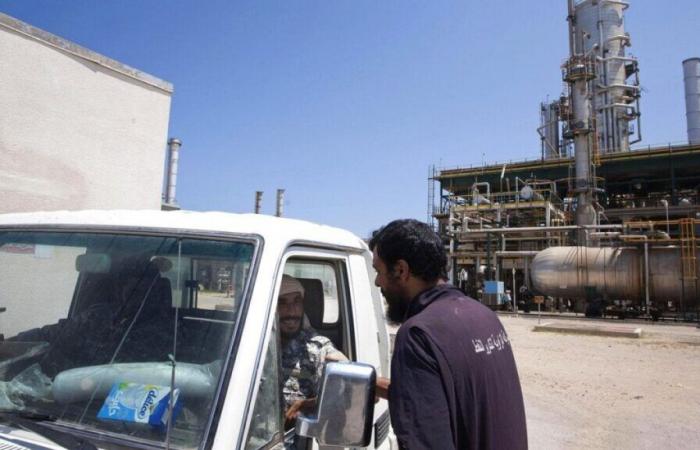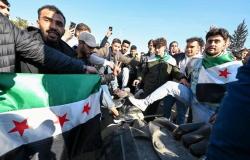This article was originally published in English
Clashes between two armed clans in the Libyan town of Zawiya caused “serious damage” to an oil refinery which had to cease its activity.
ADVERTISEMENT
Violent fighting between two rival military clans, around fifty kilometers west of the Libyan capital, led to the closure of the second largest oil refinery this Sunday.
The clashes caused “serious damage” to storage tanks at the Zawiya oil refinery, the Libyan National Oil Corp. said.
Bullets hit oil tankscausing fires, the company said, adding that firefighters managed to control the fire and plugged gas leaks as clashes raged around the refinery.
The company, which manages Libya’s oil industry, said a emergency and force majeure situationa legal maneuver that frees it from its contractual obligations due to extraordinary circumstances.
The newspaper Libyan Observer published on X a video of the refinery on fire during the night.
Last August, clashes between two heavily armed militias in Tripoli led to at least nine dead and 16 injured.
Libya is currently ruled by the Dbeibah government in Tripoli and the administration of Prime Minister Ossama Hammad in the east, which is allied with the forces of powerful military commander Khalifa Hifter.
The current fighting has pitted gunmen loyal to the Shurafaa ethnic group against warlord Mohamed Kushlaf, according to local media. Kushalf was sanctioned by the UN Security Council in 2018 for his alleged involvement in human trafficking.
As in last August, no one knows precisely what sparked the clashes, but they are not uncommon in western Libya, which is controlled by a collection of lawless militias and armed groups allied to the government of Prime Minister Abdul Hamid Dbeibah.
La Libye, roil richhas been divided for years between rival administrations in the east and west. It plunged into chaos following the 2011 uprising that turned into a civil war and toppled and then killed longtime dictator Moammar Gaddafi. Amid the chaos, militias have grown in wealth and power, particularly in Tripoli and the west of the country.
“Many families are trapped in their homes. Bullets are fired indiscriminately, hitting houses and buildings”city resident Ahmed Abu Hussein said by telephone. He said the fighting took place in many areas of the city, including densely populated neighborhoods, causing panic and terror among civilians.
Canada






